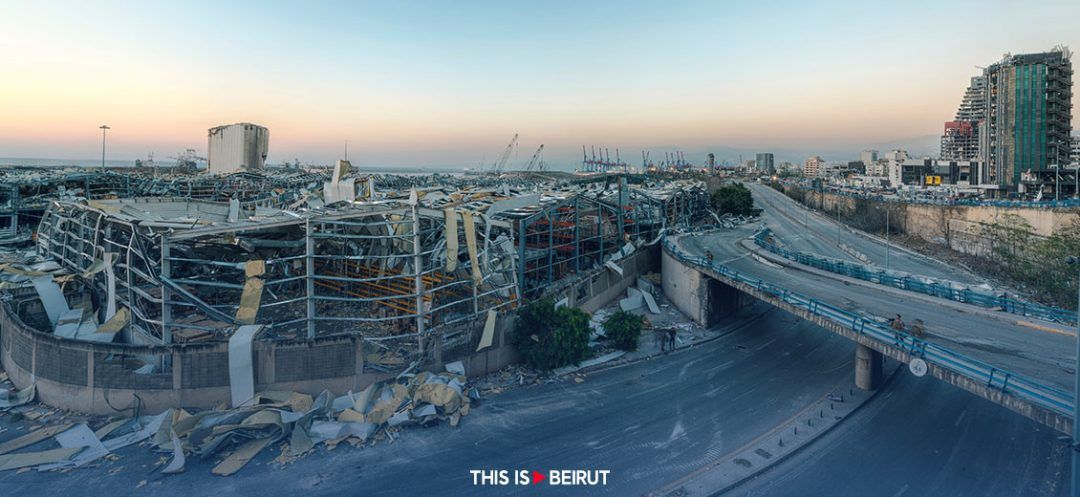
The sudden reopening of the investigation into the August 4, 2020 explosion at the Beirut port might seem trivial at first glance. However, according to some judicial sources, this move is intricately tied to the imminent February 22 retirement of the Attorney General at the Court of Cassation, Ghassan Oueidat. Additionally, it seems to be connected to a political bargaining process.
The case has recently undergone a significant development, two years after the halt of the investigation due to numerous legal challenges against Judge Tarek Bitar (who was handling the August 4 investigation) and one year after Public Prosecutor Ghassan Oueidat filed a complaint against Bitar for alleged identity theft and judicial misconduct.
According to a well-informed source, “Oueidat's cooperation has been sought by a European country in the context of investigations into several intertwined international financial cases that involve Lebanese individuals who were formerly covered by political authorities.” According to the same source, these authorities might be willing to “sacrifice individuals involved in money laundering cases in exchange for guarantees regarding the settlement of the port case.”
Oueidat, who according to information obtained by This Is Beirut is expected to leave Lebanon in the upcoming days and return on February 6, plans to appoint Deputy Prosecutor General Ghassan Khoury to take over while he’s away. Khoury might even act as interim head of the Court of Cassation after Oueidat's retirement.
It is worth noting that Khoury was removed from the August 4 investigation due to legitimate suspicion, a decision made by Judge Randa Kfoury, the President of the Sixth Chamber of the Court of Cassation. Khoury's impartiality had been challenged by the lawyers representing the families of the victims of the devastating August 4 explosion. The families accused him of showing a “certain leniency” towards the political figures subject to investigation by the examining judge, Tarek Bitar.
The investigation was reactivated following two successive judicial decisions. On Tuesday, the Deputy Prosecutor General at the Court of Cassation, Judge Sabouh Sleiman, suspended the execution of the arrest warrant issued by Bitar against former Minister of Public Works Youssef Fenianos. This decision is expected to be challenged by the Beirut Bar Association's prosecution office.
Accused of criminal negligence by Bitar in September 2021 as part of the investigation into the port explosion, Fenianos has consistently refused to appear before the court, leading to an arrest warrant issued in absentia. This procedure echoes that of Deputy Prosecutor General Imad Kabalan, who similarly suspended the arrest warrant issued by Bitar against MP Ali Hassan Khalil in December 2022. Both Youssef Fenianos and Hassan Khalil are among the suspects investigated by examining judge Tarek Bitar on charges of administrative negligence.
The two have never faced any legal consequences because the political class, driven by various interests, mobilized to secure their release. It is worth noting that in 2023, the 17 individuals detained by Bitar in connection with the investigation into the August 4 explosion were released by a decision from Prosecutor Oueidat, one of whom included the head of security at the port of Beirut, Mohammed Ziad el-Awf. The latter left Lebanon the day following his release, despite being under a travel ban.
The second judicial decision, contested by the families of the victims and legal experts, was made on January 12 by the examining judge, Habib Rizkallah. Appointed in June 2023 by the President of the Higher Judicial Council, Judge Souheil Abboud, to review the charges brought by Ghassan Oueidat against Tarek Bitar, Rizkallah asked the prosecutor to "amend the procedural acts" on which he based the prosecution against the examining judge. Briefly, to better support his complaint, Oueidat should rely on “more appropriate” legal articles. In this regard, some legal experts have expressed their indignation, saying that this standard of practice should be applied by any functioning judge.
The consulted legal experts perceive it as “an intervention by the judge in favor of one of the parties,” given that “rather than outright accepting or rejecting Oueidat's complaint against Bitar, Judge Rizkallah chose to give the prosecutor somewhat of a second chance, allowing him to amend his approach so that his appeal can be successful.”
By refusing to capitalize on this opportunity and filing an appeal against Judge Rizkallah's decision to a non-existent Court of Appeals, does Oueidat harbor other intentions? This question is troublesome for some legal experts who fear that he might be planning an “unpleasant surprise” for Tarek Bitar before his retirement.
The creation of this Court of Appeals, which ought to include three judges, has been delayed due to internal disagreements within the Higher Judicial Council.
According to a legal source, members of the Higher Judicial Council are currently viewing the possibility of convening to make the necessary appointments.
Meanwhile, families of the victims are preparing for protests to contest the decisions made. A gathering is scheduled for Thursday, with additional measures expected from the Beirut Bar Association's prosecution office.
Read more



Comments